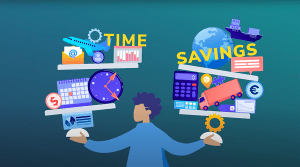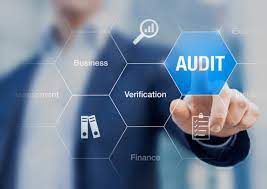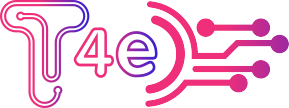Enhancing Customer Experience With Transparent Package Delivery: Shipment Tracking Software
Shipment Tracking Software: Transparent Package Delivery for Better Customer Experience
Shipment Tracking Software is a powerful and indispensable tool in the realm of logistics and supply chain management. In today's fast-paced global economy, the seamless movement of goods from one point to another is of paramount importance. Shipment tracking software plays a pivotal role in this process by providing real-time visibility and control over the entire shipping and delivery process. Whether it's for a small e-commerce business or a large multinational corporation, this software enables organizations to track, manage, and optimize their shipments, ensuring that products reach their destination efficiently and on time. This introduction explores the significance and functionality of shipment tracking software, shedding light on its critical role in enhancing operational efficiency, customer satisfaction, and overall business success.
![]()
![]()
Below are some key features and benefits of shipment tracking software:
- Real-time Visibility: Track the exact location and status of shipments in real-time, enabling proactive decision-making and improved customer communication.
- Efficient Inventory Management: Monitor stock levels and reduce the risk of overstocking or stockouts, saving time and money.
- Customizable Alerts: Set up notifications for specific events or milestones in the shipping process, ensuring timely actions.
- Integration Capabilities: Seamlessly integrate with other logistics and e-commerce tools to create a comprehensive solution.
- Analytics and Reporting: Access data-driven insights to optimize routes, shipping methods, and overall supply chain performance.
- Customer Satisfaction: Provide customers with the ability to track their orders, leading to increased trust and loyalty.
- Reduced Errors: Minimize human error and discrepancies in shipping and order fulfillment.
- Compliance and Security: Ensure adherence to shipping regulations and data security standards.
- Cost Savings: Streamline operations, reduce manual work, and save on labor and shipping costs.
- Scalability: Grow your business without worrying about outgrowing your shipment tracking software, as it can usually adapt to your evolving needs.
![]()
![]()
How to choose shipment tracking software?
Choosing the right shipment tracking software is a critical decision for businesses that rely on logistics and shipping operations. To make an informed choice, consider the following key factors when selecting shipment tracking software:
- Business Needs Assessment:
- Start by assessing your specific business needs. Understand the volume of shipments, the types of products you handle, and the complexity of your supply chain.
- Ease of Use:
- Opt for user-friendly software that your team can quickly adapt to. Complex interfaces can lead to errors and inefficiencies.
- Real-time Tracking:
- Ensure the software provides real-time tracking capabilities, allowing you to monitor shipments at every stage of the process.
- Customization:
- Look for software that can be customized to match your specific requirements. This includes custom alerts, reporting, and integration options.
- Integration:
- Choose software that seamlessly integrates with your existing systems, such as e-commerce platforms, inventory management, and accounting software.
- Scalability:
- Consider the software's ability to grow with your business. It should accommodate an increase in the volume of shipments and expanding needs.
-
Analytics and Reporting:
- Select software that offers robust analytics and reporting features. These tools can provide valuable insights into your shipping performance.
- Reliability:
- Ensure the software is reliable, with minimal downtime or technical issues. Read reviews and seek recommendations from other businesses.
- Cost and ROI:
- Evaluate the cost of the software in relation to the benefits it offers. Calculate the potential return on investment (ROI) in terms of time and cost savings.
- Customer Support:
- Check the quality of customer support provided by the software vendor. Quick and efficient support can be crucial in resolving issues promptly.
- Compliance and Security:
- Confirm that the software complies with shipping regulations and provides adequate data security measures to protect sensitive information.
- User Feedback:
- Research user reviews and seek feedback from businesses in your industry that have used the software. This can provide valuable insights into its performance and suitability.
- Trial Period:
- Whenever possible, opt for software that offers a trial period. This allows you to test the software's compatibility with your operations before making a long-term commitment.
- Future-proofing:
- Consider the long-term viability of the software. Look for updates, improvements, and a roadmap for future features to ensure it remains relevant as your business evolves.
- Cost Structure:
- Understand the software's pricing structure, including any hidden costs or additional fees. Compare pricing plans to find the best fit for your budget.
By carefully evaluating these factors and aligning them with your business's unique needs, you can make an informed decision when choosing shipment tracking software that will enhance your logistics and shipping operations.
Implement Shipment Tracking with Expert Help:
Implementing shipment tracking with expert assistance is a smart move for businesses looking to streamline their logistics and improve customer satisfaction. Engaging professionals who specialize in shipment tracking and logistics software can ensure a seamless integration process. These experts bring valuable insights into best practices, system customization, and data security. With their guidance, businesses can take full advantage of advanced tracking capabilities, real-time visibility, and analytics, all while minimizing operational disruptions. Whether you're a small e-commerce store or a large-scale distributor, the expertise of professionals in the field can help you optimize your shipping operations and enhance the overall customer experience.
An Overview of Shipment Tracking Products
In an increasingly interconnected world, the efficient movement of goods is paramount for businesses of all sizes and industries. Shipment tracking products have become essential tools, offering real-time visibility into the logistics process, enhancing customer satisfaction, and optimizing operations. Here, we explore the landscape of these products, their functionalities, and how they're reshaping the way we navigate the complex web of global supply chains.
Diverse Solutions for Varied Needs:
Shipment tracking products come in a diverse range, catering to the unique needs of businesses. From e-commerce startups shipping their first packages to multinational corporations managing complex supply chains, there's a solution for everyone. These products offer a spectrum of features, making them adaptable to a wide array of industries, from retail and manufacturing to healthcare and food services.
Real-time Tracking and Transparency:
One of the fundamental capabilities of shipment tracking products is real-time tracking. They provide a bird's-eye view of the entire shipping process, allowing businesses and customers to trace their shipments from the point of origin to the final destination. This level of transparency is a game-changer, enabling companies to make informed decisions and customers to gain trust in the reliability of their deliveries.
Customization and Integration:
These products are designed to be customizable, tailoring their features to align with specific business requirements. Custom alerts, reporting, and integration capabilities make it possible to seamlessly weave shipment tracking into existing systems, such as inventory management, order processing, and customer relationship management. This adaptability ensures that businesses can maximize the benefits of shipment tracking without a major overhaul of their operations.
Data-Driven Insights:
Shipment tracking products also offer robust analytics and reporting tools. By harnessing the power of data, businesses can gain valuable insights into their shipping performance. This data-driven approach empowers companies to optimize routes, shipping methods, and inventory management. It's not just about tracking; it's about using data to make smarter, more efficient decisions.
Enhancing Customer Experience:
From the consumer perspective, shipment tracking products are a welcome addition. Customers can track their orders with ease, which not only provides peace of mind but also elevates the overall shopping experience. A satisfied customer is more likely to become a repeat customer, making these products an invaluable asset for businesses focused on building loyalty.
Security and Compliance:
In an era where data security and compliance are paramount, shipment tracking products do not fall short. They adhere to shipping regulations and offer robust data security measures to safeguard sensitive information. This aspect is crucial, especially when dealing with personal and financial data during the shipping process.
The Future of Logistics:
As technology continues to evolve, so do shipment tracking products. Vendors are continually improving their offerings and expanding their capabilities. The future holds promises of even more advanced tracking methods, increased automation, and further integration with emerging technologies like artificial intelligence and blockchain.
In conclusion, shipment tracking products have revolutionized the way businesses handle logistics and customer satisfaction. They are versatile, adaptable, and data-driven, providing an unprecedented level of transparency and control over the shipping process. Whether you're a small business looking to scale up or a multinational corporation seeking greater efficiency, these products are reshaping the world of logistics, one package at a time.
Boost Customer Loyalty with Shipment Tracking:
Shipment tracking has evolved into a powerful tool that not only enhances operational efficiency but also plays a significant role in fostering customer loyalty. The ability to track packages in real-time offers a multitude of benefits that go beyond transparency in logistics. Here's how shipment tracking can boost customer loyalty:
- Increased Transparency: Shipment tracking provides customers with real-time updates on the status and location of their orders, instilling confidence and reducing anxiety about delivery timelines.
- Improved Communication: Customers appreciate being in the loop. Shipment tracking allows businesses to proactively inform customers of any delays or issues, demonstrating transparency and commitment to service.
- Enhanced Customer Experience: The peace of mind that comes with tracking their packages contributes to an overall positive customer experience. Satisfied customers are more likely to become repeat buyers.
- Customization: Shipment tracking systems often offer customization options, allowing businesses to tailor alerts and notifications to meet individual customer preferences.
- Efficient Issue Resolution: In case of delivery problems or lost packages, shipment tracking can expedite issue resolution. Swiftly addressing customer concerns can turn a potentially negative experience into a positive one.
- Competitive Advantage: Offering advanced shipment tracking capabilities can set your business apart from competitors and attract customers seeking a seamless, reliable shopping experience.
- Data for Improvement: Tracking data can provide valuable insights into delivery performance, helping businesses refine their logistics strategies and optimize delivery times.
eSourcing Software: Unlock the Best-Value Deals with Suppliers
eSourcing Software: Unlock the Best-Value Deals with Suppliers


eSourcing software, a dynamic and sophisticated solution, has become an indispensable tool in the world of procurement and supply chain management. In today's highly competitive business landscape, organizations are continually seeking ways to optimize their sourcing processes, enhance supplier relationships, and drive cost-efficiency. eSourcing software, often referred to as electronic sourcing or e-procurement software, serves as a technological linchpin in achieving these objectives. It empowers procurement professionals with a comprehensive suite of digital tools to streamline, automate, and enhance the entire sourcing cycle, from identifying potential suppliers to negotiating contracts and monitoring supplier performance. This introduction explores the transformative capabilities of eSourcing software, shedding light on its pivotal role in reshaping modern procurement practices and facilitating agile, data-driven decision-making for businesses of all sizes and industries.
What is offered within eSourcing software


eSourcing software offers a comprehensive set of tools and features designed to streamline and enhance the entire sourcing and procurement process.
Here are some of the key offerings within eSourcing software:
-
Supplier Discovery:
These tools help identify potential suppliers, both locally and globally, and provide insights into their capabilities, track records, and reputations.
- RFx (Request for Information, Proposal, Quotation) Management:
eSourcing software allows users to create, distribute, and manage RFx documents electronically, facilitating the bidding and proposal process.
-
Auction and Bidding:
Some platforms enable online auctions and bidding events, which can drive competition among suppliers and lead to cost savings.
-
Supplier Evaluation and Selection:
The software helps assess supplier performance, including quality, reliability, and cost-effectiveness, to aid in the decision-making process.
-
Contract Management:
It allows for the creation, negotiation, and storage of contracts electronically, ensuring better visibility into contractual terms and obligations.
-
Supplier Collaboration:
Collaboration features facilitate communication and information sharing between buyers and suppliers, fostering stronger relationships.
-
Analytics and Reporting:
eSourcing software offers robust data analytics and reporting tools, providing insights into sourcing performance, supplier metrics, and cost savings opportunities.
-
Integration with ERP Systems:
Many eSourcing solutions integrate seamlessly with enterprise resource planning (ERP) systems, enabling a smooth flow of data and processes between procurement and finance.
-
Compliance and Risk Management:
Some platforms assist in managing compliance with industry regulations and mitigate risks associated with sourcing decisions.
-
Electronic Document Management:
It allows for the secure storage and retrieval of important sourcing documents, ensuring easy access to historical data and records.
-
E-sourcing Marketplace:
In some instances, eSourcing software connects users to e-sourcing marketplaces, where a wide array of suppliers and products can be accessed.
-
Reverse Auctions:
This feature enables suppliers to compete in real-time auctions, driving down costs as they bid against each other for contracts.
-
Supplier Performance Management:
These tools help track and assess supplier performance over time, identifying areas for improvement or opportunities for recognition.
eSourcing software is a versatile solution that caters to the diverse needs of procurement professionals and organizations by offering a range of functionalities designed to optimize efficiency, reduce costs, and enhance supplier relationships.
Functionality and Benefits of eSourcing Software:


eSourcing software offers a wide range of functionality and benefits that can significantly enhance the procurement and sourcing processes for businesses. Here are some key features and advantages:
Functionality:
- Supplier Discovery: eSourcing software provides tools for identifying and evaluating potential suppliers, expanding supplier networks, and diversifying the supply chain.
- eRFx Management: It enables the creation and management of electronic Request for Information (RFI), Request for Proposal (RFP), and Request for Quotation (RFQ) processes, making it easier to gather and evaluate supplier responses.
- Auction and Bidding: Many eSourcing platforms offer auction and bidding capabilities, allowing for real-time, competitive bidding to secure the best prices and terms from suppliers.
- Supplier Collaboration: These tools facilitate communication and collaboration with suppliers, allowing for document sharing, negotiations, and performance evaluations.
- Contract Management: eSourcing software often integrates with contract management systems to streamline the contract creation, negotiation, and approval processes.
- Savings Tracking: It provides features for tracking and reporting on cost savings achieved through the sourcing and procurement processes.
- Analytics and Reporting: Robust reporting and analytics tools allow users to gain insights into supplier performance, market trends, and sourcing process efficiency.
- Compliance and Risk Management: eSourcing software helps in managing compliance with procurement regulations and mitigating risks associated with supplier relationships.
Benefits:
- Cost Savings: By automating and optimizing the sourcing process, eSourcing software helps businesses negotiate better prices, terms, and conditions, resulting in significant cost savings.
- Efficiency: It streamlines and automates various sourcing tasks, reducing manual effort, minimizing errors, and accelerating the procurement cycle.
- Transparency: Enhanced visibility into supplier performance and market trends empowers informed decision-making and reduces the risk of unexpected supply chain disruptions.
- Supplier Relationship Management: Effective supplier collaboration tools build stronger relationships, fostering improved communication and trust.
- Compliance: eSourcing software aids in ensuring compliance with procurement regulations, reducing the risk of legal and regulatory issues.
- Data-Driven Decision-Making: Access to real-time data and analytics enables data-driven decision-making, helping businesses adapt to changing market conditions.
- Global Sourcing: It supports global sourcing efforts by facilitating communication with international suppliers and managing currency and language differences.
- Strategic Sourcing: eSourcing software enables a shift from tactical to strategic sourcing, aligning sourcing decisions with broader business objectives.
- Scalability: It accommodates the needs of businesses of all sizes, from small enterprises to large corporations, as well as across various industries.
In summary,
eSourcing software is a powerful tool for businesses seeking to optimize their procurement and sourcing processes, improve supplier relationships, and achieve cost-efficiency. Its functionality and benefits make it an essential component of modern supply chain and procurement management.
Top eSourcing Software Products
In the ever-evolving landscape of procurement and supply chain management, eSourcing software products have emerged as powerful allies for businesses seeking to streamline their sourcing processes, boost efficiency, and drive cost savings. These platforms offer a wide array of features and capabilities designed to transform the way organizations source goods and services, making the procurement process more efficient, transparent, and collaborative. Below, we introduce some of the top eSourcing software products that have garnered recognition for their innovation and effectiveness:
-
SAP Ariba:
SAP Ariba is a leading eSourcing solution known for its end-to-end procurement capabilities. It provides tools for supplier discovery, negotiation, contract management, and spend analysis. With its robust features, SAP Ariba simplifies procurement processes and helps organizations make informed sourcing decisions.
- Coupa:
Coupa's eSourcing software is part of its comprehensive spend management suite. It offers users a platform for supplier collaboration, sourcing optimization, and contract management. Coupa stands out for its user-friendly interface and robust analytics capabilities.
- JAGGAER:
JAGGAER is recognized for its suite of eSourcing solutions that encompass spend analysis, sourcing, and procurement automation. JAGGAER's platform is designed to enhance supplier collaboration and drive cost savings through informed decision-making.
-
Ivalua:
Ivalua's eSourcing software provides procurement professionals with tools to manage sourcing events, negotiations, and supplier performance. It offers a comprehensive source-to-pay suite that covers various procurement needs, including contract management and supplier relationship management.
- GEP SMART:
GEP SMART is a unified procurement platform that includes robust eSourcing capabilities. It enables organizations to streamline their sourcing processes, from supplier identification to contract management. GEP SMART is known for its flexibility and user-friendly interface.
-
SynerTrade:
SynerTrade offers eSourcing software that focuses on supplier collaboration, data analytics, and automation. It empowers procurement teams to optimize their sourcing events and achieve cost savings while promoting transparency and supplier relationships.
- IBM Emptoris:
IBM Emptoris is part of the IBM Procurement suite, providing eSourcing and contract management capabilities. It offers analytics and supplier collaboration tools, enabling organizations to drive efficiency and compliance in their procurement processes.
- Oracle Procurement Cloud:
Oracle Procurement Cloud offers eSourcing as part of its comprehensive procurement suite. It helps organizations manage their sourcing events, negotiations, and supplier contracts while leveraging data analytics for informed decision-making.
These eSourcing software products offer a range of features to suit the diverse needs of organizations, from small businesses to large enterprises. They empower procurement professionals to make data-driven decisions, enhance supplier collaboration, and drive cost savings, ultimately contributing to more efficient and competitive procurement practices. The choice of the right eSourcing software product depends on the specific requirements and goals of each business.
Source the best products and services cost-efficiently:
In today's highly competitive market, sourcing the best products and services cost-efficiently is paramount for the success of any business. With effective procurement strategies and the right tools in place, companies can not only identify the most reliable suppliers but also negotiate favorable terms, streamline the purchasing process, and ensure the highest quality while keeping costs in check. The ability to source cost-efficiently enables businesses to maintain a competitive edge, increase profitability, and provide superior products or services to their customers. Whether it's finding the best suppliers, optimizing supply chains, or utilizing eSourcing software, cost-efficient sourcing is a cornerstone of sustainable business growth.
Bullet Points:
- Efficient sourcing reduces operational costs and enhances profitability.
- Strategic procurement helps identify reliable suppliers and negotiate favorable terms.
- Streamlined purchasing processes improve overall supply chain efficiency.
- Cost-efficient sourcing ensures high product or service quality while managing expenditures.
- Leveraging eSourcing software can significantly enhance the sourcing process and decision-making.
IT Audit Services and Why You May Need Them In Bulgaria 2023
Introduction:
IT Audit Services play a pivotal role in today's technology-driven business landscape, ensuring that organizations maintain the integrity, security, and efficiency of their information technology systems. As the digital realm continues to evolve and expand, the need for comprehensive assessments of IT infrastructure and operations has become increasingly critical. These services encompass a wide range of processes, from evaluating data security protocols and compliance with industry regulations to assessing the reliability of software systems and the effectiveness of IT risk management. In an era marked by constant technological advancements and the ever-present threat of cyberattacks, IT Audit Services have emerged as an indispensable safeguard, providing businesses with the assurance that their digital assets are not only secure but also optimized for peak performance and resilience.


Important points:
- IT service management assess an organization's information technology systems and controls.
- They help identify vulnerabilities, risks, and compliance issues in IT infrastructure.
- IT audits evaluate data security, network configurations, and access controls.
- They ensure compliance with regulations and industry standards (e.g., GDPR, HIPAA, ISO 27001).
- IT audits can uncover fraud, misuse of resources, and inefficiencies in IT operations.
- They provide recommendations for improving IT security and risk management.
- IT audit reports are essential for stakeholders, management, and regulatory bodies.
- Continuous IT auditing helps organizations stay ahead of evolving cybersecurity threats.
- IT audit services contribute to the overall governance and risk management strategies of a business


Stages of IT Auditing:
Planning:
- Define the scope and objectives of the IT asset management.
- Identify key stakeholders and audit team members.
- Develop an audit plan, including timelines and resources.
Risk Assessment:
- Evaluate the organization's IT risk landscape.
- Identify potential threats and vulnerabilities.
- Prioritize areas of focus based on risk assessment.
Data Collection and Documentation:
- Gather relevant information about the IT systems and controls.
- Review documentation, policies, and procedures.
- Interview key personnel to understand IT processes.
Testing and Evaluation:
- Assess the effectiveness of IT controls and security measures.
- Conduct technical tests, such as penetration testing and vulnerability scanning.
- Evaluate compliance with regulatory requirements and industry standards.
Analysis and Findings:
- Analyze the collected data and audit results.
- Identify weaknesses, risks, and non-compliance issues.
- Assess the potential impact of these findings.
Recommendations:
- Provide actionable recommendations to address identified issues.
- Suggest improvements to IT processes and controls.
- Offer guidance on mitigating risks and enhancing security.
Reporting:
- Prepare an IT audit report that includes findings and recommendations.
- Communicate the report to relevant stakeholders and management.
- Ensure the report is clear, concise, and supported by evidence.
Follow-up and Monitoring:
- Track the implementation of recommended changes and improvements.
- Monitor progress in addressing audit findings.
- Ensure ongoing compliance and risk management.
- Closure and Reporting to Management:
- Conclude the IT audit process and prepare a final report.
- Share the outcomes and any outstanding issues with senior management.
- Obtain management's response and action plans regarding the audit.
Continuous Improvement:
- Reflect on the audit process and outcomes.
- Update the IT audit program to incorporate lessons learned.
- Continuously improve the organization's IT governance and risk management based on audit insights.


You need IT auditing for several important reasons:
- Security and Data Protection:
IT auditing helps ensure that an organization's information technology systems are secure and that sensitive data is protected. This is crucial in an era of increasing cyber threats and data breaches.
- Compliance:
Many industries have specific regulations and standards (e.g., GDPR, HIPAA, PCI DSS) that require strict adherence to IT security and data protection practices IT support services helps ensure compliance with these requirements, avoiding legal and financial repercussions.
- Risk Management:
IT auditing identifies vulnerabilities, weaknesses, and risks in IT systems. By addressing these issues, organizations can proactively manage and mitigate potential threats before they lead to major disruptions or breaches.
- Efficiency and Performance:
Auditing IT systems also assesses their efficiency and performance. It can help identify bottlenecks, inefficiencies, or underutilized resources that, when addressed, can lead to cost savings and improved productivity.
- Resource Allocation:
Through IT auditing, organizations can make informed decisions about resource allocation. This includes optimizing IT budgets, staff, and technology investments to align with strategic goals.
-
Process Improvement:
IT audits can uncover process deficiencies and operational shortcomings. By identifying these areas, organizations can streamline processes, reduce waste, and improve overall operations.
- Stakeholder Trust:
Stakeholders, including customers, partners, and shareholders, place their trust in organizations to protect their data and maintain secure IT environments. IT auditing helps maintain this trust and safeguard the organization's reputation.
- Internal Control and Governance:
IT audits contribute to strong internal controls and governance structures. They ensure that IT policies and procedures are effective in managing and monitoring IT assets and data.
- Preventing Fraud and Misuse:
IT auditing can detect instances of fraud, misuse of IT resources, or unauthorized access to data. This helps prevent financial losses and maintain the integrity of IT systems.
- Continuous Improvement:
By conducting regular IT audits, organizations can continually assess and improve their IT systems, adapt to changing threats, and stay up-to-date with technology advancements.
In summary, IT auditing is essential for safeguarding an organization's IT environment, ensuring compliance, managing risks, and improving overall performance and efficiency in an increasingly technology-dependent world.
Keep Your IT Environment in Check with Experts:
In the ever-evolving landscape of technology, keeping your IT audit environment in check is not just a prudent choice but a necessity. The intricacies of modern information systems demand expertise to navigate. This is where the guidance of IT experts becomes indispensable. Their in-depth knowledge, vigilance, and proactive approach are your insurance against the ever-looming threats of cyberattacks, data breaches, and system failures. By entrusting your IT environment to these experts, you are not merely ensuring its stability but also empowering your organization to harness the full potential of technology, innovate with confidence, and stay ahead in a dynamic digital world. In the realm of IT, expertise isn't a luxury; it's a vital safeguard and a pathway to sustainable growth.
IT Consultancy IT Solutions That Work For Bulgaria.
Introduction to IT Consulting in Bulgaria
IT consultancy, short for Information Technology consultancy, is a professional service that offers expert advice and guidance on a wide range of information technology-related matters. IT consultants are typically highly skilled and knowledgeable individuals or firms that assist organizations in optimizing their IT systems, processes, and strategies to achieve their business objectives. These consultants analyze existing technology infrastructure, identify areas for improvement, recommend solutions, and provide implementation support. Their services can encompass areas such as cybersecurity, software development, network infrastructure, cloud computing, data management, and IT project management. IT consultancy plays a crucial role in helping businesses stay competitive and technologically up-to-date in an ever-evolving digital landscape.


Benefits of IT Consultancy in Bulgaria:
IT consultancy plays a pivotal role in the development and growth of the technology sector in Bulgaria. The country has been steadily establishing itself as a tech hub in Eastern Europe, and IT consultancy services have been instrumental in fostering this growth. Here are some of the key benefits of IT consultancy in Bulgaria:
-
Access to Expertise:
IT consultants in Bulgaria are well-trained and highly skilled professionals with expertise in a wide range of technologies and industries. They provide businesses with access to a diverse pool of knowledge and experience, which can be invaluable in solving complex IT-related challenges.
-
Cost-Effective Solutions:
IT consultancy services in Bulgaria often offer cost-effective solutions for businesses. They can help organizations optimize their IT infrastructure, reduce operational costs, and make informed decisions when it comes to technology investments.
-
Strategic Planning:
IT consultants assist companies in developing long-term IT strategies that Benefits of IT Consultancy align with their business goals. This strategic approach ensures that technology investments are made wisely, leading to improved efficiency and competitiveness.
-
Adaptation to Emerging Technologies:
Staying up-to-date with the latest technology trends is crucial in the IT industry. IT consultants in Bulgaria can help businesses adopt emerging technologies like artificial intelligence, blockchain, and the Internet of Things, keeping them ahead of the curve.
-
Cybersecurity Expertise:
In an age where data breaches and cyberattacks are a constant threat, IT consultancy services can be essential in enhancing a company's cybersecurity posture. Bulgarian Benefits of IT Consultancy can help implement robust security measures to protect sensitive data and maintain compliance with international standards.
-
Flexible and Scalable Solutions:
IT consultants understand that different businesses have varying needs and budgets. They can provide tailored solutions that are flexible and scalable, ensuring that businesses can adapt to changing requirements and growth.
-
Improved Productivity:
By streamlining processes and systems, IT consultancy can significantly boost productivity within an organization. This increased efficiency leads to reduced downtime and improved employee morale.
-
Regulatory Compliance:
Staying compliant with local and international regulations is a significant concern for many businesses. IT consultants in Bulgaria can help ensure that a company's IT systems and practices adhere to relevant laws and regulations.
-
Risk Management:
Identifying and mitigating IT-related risks is a crucial aspect of IT consultancy. Consultants can help businesses develop risk management strategies, disaster recovery plans, and data backup solutions to safeguard their operations.
-
Global Reach:
Many Bulgarian IT consultancy firms have a global perspective and can help businesses expand their international reach. They can provide guidance on entering new markets, navigating international regulations, and adapting to the global business environment.
-
Faster Problem Resolution:
When technical issues arise, having access to experienced IT consultants can lead to faster problem resolution, reducing downtime and minimizing the impact on the business.
-
Competitive Advantage:
Utilizing IT consultancy services can give companies a competitive edge in the market. They can implement innovative technologies and strategies that help businesses outperform their competitors Benefits of IT Consultancy.


Access to Expert Advice and Guidance:
Access to expert advice and guidance is a vital aspect of personal and professional growth, decision-making, and problem-solving. Whether you are an individual seeking to expand your knowledge, a business aiming to make informed choices, or an organization striving to develop effective strategies,Benefits of IT Consultancy, having access to experts in relevant fields can be a game-changer. This invaluable resource can be found in a variety of contexts, from consulting with professionals in specific domains to leveraging online resources and mentorship programs.


- Professional Development:
Access to expert advice is essential for individuals looking to advance their careers and skill sets. Professionals often seek guidance from mentors or industry leaders who can provide insights into their field. This guidance may include career advice, skill development recommendations, and strategies for achieving personal and professional goals. Mentoring relationships can offer invaluable insights and connections that help individuals make informed decisions and progress in their chosen career paths.
-
Business Strategy:
In the corporate world, access to expert advice is a cornerstone of informed decision-making and successful business strategies. Companies frequently engage with consultants, industry experts, and advisory boards to gain specialized knowledge and recommendations. Expert advisors can help identify market trends, assess competition, and develop strategies that drive business growth and innovation.
- Problem Solving:
When faced with complex problems, individuals and organizations often turn to experts for guidance. Experts can analyze the situation from their specialized perspective and provide unique insights and solutions. This approach ensures that issues are addressed efficiently and effectively, potentially saving time and resources.
- Education and Learning:
Access to expert guidance is pivotal in the educational sector. Students, from K-12 to higher education, rely on teachers, professors, and subject matter experts to provide them with the knowledge and skills needed to excel academically. Online courses, webinars, and workshops led by experts have also become increasingly popular, allowing learners to access expert guidance from anywhere in the world.
- Innovation and Research:
Access to expert advice drives innovation and research. Researchers often collaborate with experts in various fields to explore new ideas, cross-pollinate knowledge, and tackle complex problems. This interdisciplinary approach fosters creativity and groundbreaking discoveries.
Access to Expertise for Increased Efficiency:
In today's fast-paced and information-driven world, access to expertise is a valuable resource that can significantly boost efficiency across various fields. Whether it be in business, education, healthcare, or any other sector, the ability to connect with experts and leverage their knowledge and skills has become a key driver of success. This access to expertise not only accelerates problem-solving and decision-making but also fosters innovation and progress.


- Knowledge Sharing:
One of the most significant benefits of increased access to expertise is the ability to share and disseminate knowledge. Experts possess specialized information and skills that can be crucial in addressing complex challenges. By facilitating access to these experts, organizations and individuals can tap into this wealth of knowledge. This, in turn, enables the efficient transfer of skills and insights, leading to better-informed decisions and more effective problem-solving.
- Faster Decision-Making:
Access to experts can expedite decision-making processes. Instead of relying solely on internal knowledge, individuals and organizations can reach out to experts for guidance. This can be particularly important in time-sensitive situations, where quick and well-informed decisions are paramount. Through consultations and discussions with experts, critical decisions can be made with a higher degree of confidence and efficiency.
-
Problem Resolution:
Access to expertise is a powerful tool for resolving complex problems. Experts can offer unique perspectives and solutions that may not be readily available within an organization. By having efficient access to these experts, problems can be addressed with greater precision, leading to quicker and more effective resolutions.
- Innovation and Creativity:
The interchange of ideas with experts can stimulate innovation and creativity. When experts from diverse fields collaborate, they bring fresh perspectives and ideas to the table. This cross-pollination of knowledge often leads to breakthroughs and the development of new solutions, which can significantly enhance efficiency and effectiveness in various domains.
- Remote Collaboration:
Advances in technology have greatly expanded the possibilities for accessing expertise. With video conferencing, virtual meetings, and online collaboration tools, experts can be engaged remotely, eliminating geographical barriers. This remote access to expertise has revolutionized the way organizations and individuals work, making it easier to connect with experts from around the world, resulting in increased efficiency and productivity.
-
Continuous Learning:
Access to expertise encourages ongoing learning and skill development. By interacting with experts, individuals can acquire new knowledge and improve their skills. This continuous learning process is essential for staying competitive in today's rapidly evolving job market and maintaining a high level of efficiency in one's work.
- Cost Savings:
Efficient access to expertise can also lead to cost savings. Rather than hiring full-time specialists, organizations can seek expert advice on a project-by-project basis. This approach minimizes overhead costs and allows for the optimization of resources.
- Better-informed Policy and Strategy:
In fields such as politics and governance, having access to expert advice is essential for developing informed policies and strategies. Lawmakers and decision-makers who can consult with experts are more likely to craft policies that are grounded in evidence and best practices, resulting in a more efficient and effective government.
conclusion:
In conclusion, access to expertise is a powerful catalyst for increased efficiency in various aspects of life. It enhances decision-making, problem-solving, innovation, and learning. With the advent of technology and the ability to connect with experts regardless of geographical boundaries, this access to expertise has become more accessible than ever before. As we continue to harness the knowledge and skills of experts in different fields, we can expect to see efficiency and effectiveness soar to new heights, benefiting individuals, organizations, and society as a whole.



